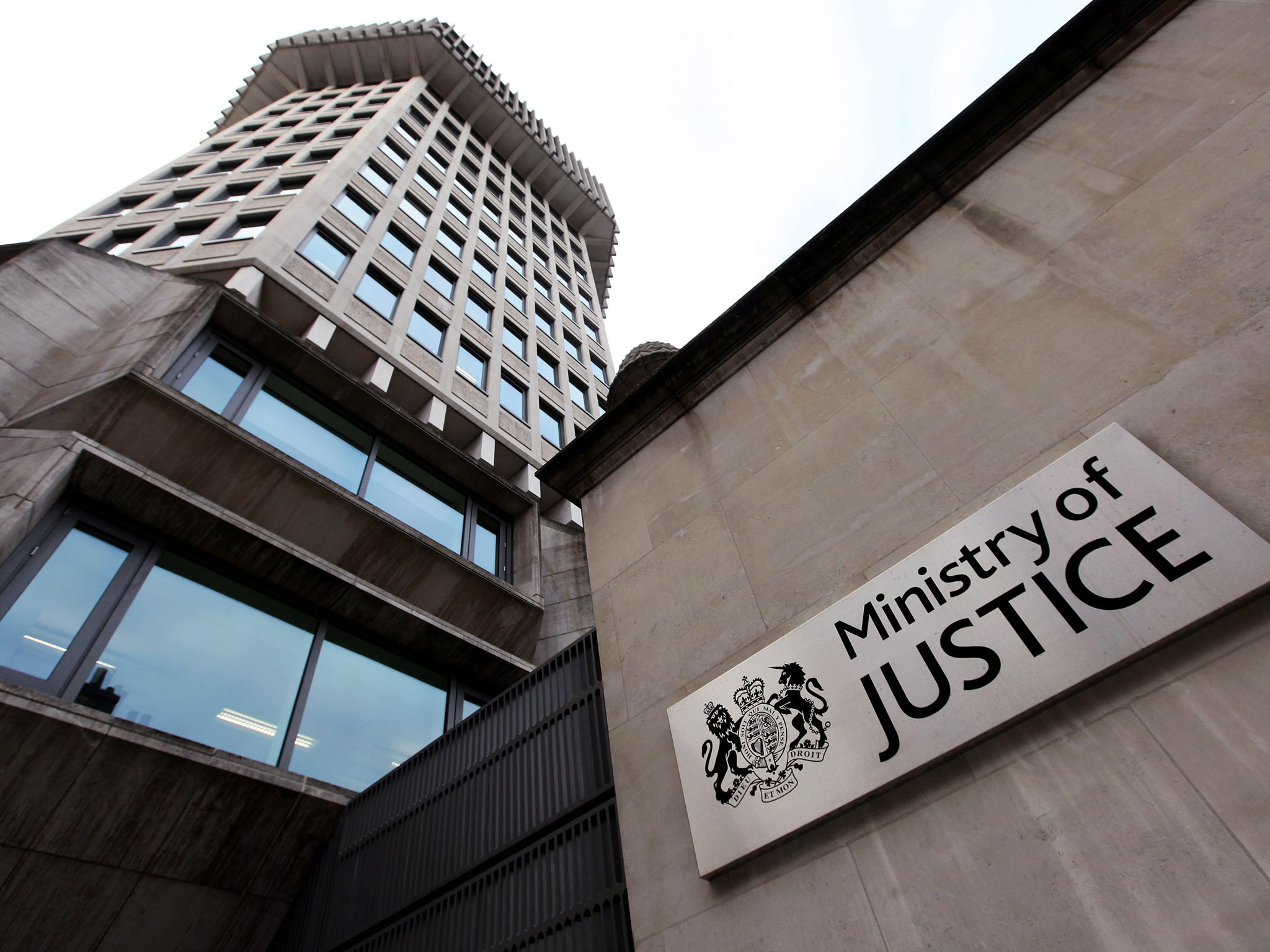Legal aid boycott: Court chaos expected as lawyers refuse to take up new cases
As a boycott by lawyers of legal aid work begins in protest at cuts in fees, Jamie Merrill investigates the impact

It’s hard to tell from the drab waiting area at Camberwell Green magistrates’ court in south London, but the wheels of British justice are starting to turn more slowly than usual.
Thousands of solicitors at magistrates’ courts and police stations across England and Wales have gone on unofficial strike, furious at an 8.75 per cent cut in legal aid fees and pledging to boycott new legal cases indefinitely or until the Lord Chancellor Michael Gove backs down.
Hamza Adesanu, who works at Camberwell, is among those promising that he is in the fight for the long haul.
He remained in court to deal with another matter, along with others still quietly carrying out “selective” pro-bono work to “keep the most vulnerable out of the cells”, but their refusal to take on new cases paid at the lower aid rates left court staff scrambling to find enough duty solicitors.
“Come back in four weeks and this court will be in chaos,” he said. “The Ministry of Justice will try and massage the figures, but you will see defendants representing themselves in a massive backlog lasting until January.”
The 42-year-old specialises in representing defendants who feel they have been mistreated by the police, and is concerned low fees have started damaging the judicial process. “Justice is already suffering as defendants are being pushed to plead guilty because paperwork hasn’t arrived and the court wants to push cases through,” he said – but insisted the strike was badly needed.
“I can spend up to 20 hours preparing for a case, then have to attend court three or four times to make less than £180,” said Mr Adesanu. “I love criminal law and earning millions in corporate law just isn’t for me, but this isn’t sustainable like this.”
Nervous officials at the Ministry of Justice will have been thankful it was a slow morning in Camberwell. “It was too hot last night for much crime,” joked the security guard, as a suspected drug dealer, one of the few facing the court, appeared via video-link from Sutton police station.
The defendant was facing charges of intent to supply crack cocaine, and luckily for the 21-year-old his legal aid had been agreed the previous night, meaning he was given a court-appointed lawyer, but that didn’t stop 20 minutes of confusion over his charges.
Later 22-year-old Humphrey Burke, who faces charges of grievous bodily harm after he allegedly left a Serco security guard fighting for her life, was due to face the magistrates. Like the suspected drug dealer before him, he had just “beaten the strike” start date and will have a solicitor.
But that won’t be the case for others facing prosecution as the week goes on, according to the London Criminal Courts Solicitors’ Association, one of the bodies that is supporting the action. Last night it said courts across the country were “struggling to find solicitors” and that solicitors will “stand together for as long as it takes”. Further support came from the Criminal Bar Association, which represents 4,000 barristers, as it opened its own ballot.
Across town at Westminster magistrates’ court, solicitors were complaining of 15-hour working days and fees that haven’t risen in 20 years. One said: “We are irrelevant. The people who will suffer in this are the vulnerable, those that can’t help themselves.
“We will end up a two-tier system for those who can afford private representation and those who can’t”.
A Ministry of Justice spokesperson said: "The impact of today's action has been negligible. Courts sat as usual. Over 95 per cent of cases at a police station requiring a solicitor have been picked up within an hour- little different to any other day."
Bookmark popover
Removed from bookmarks